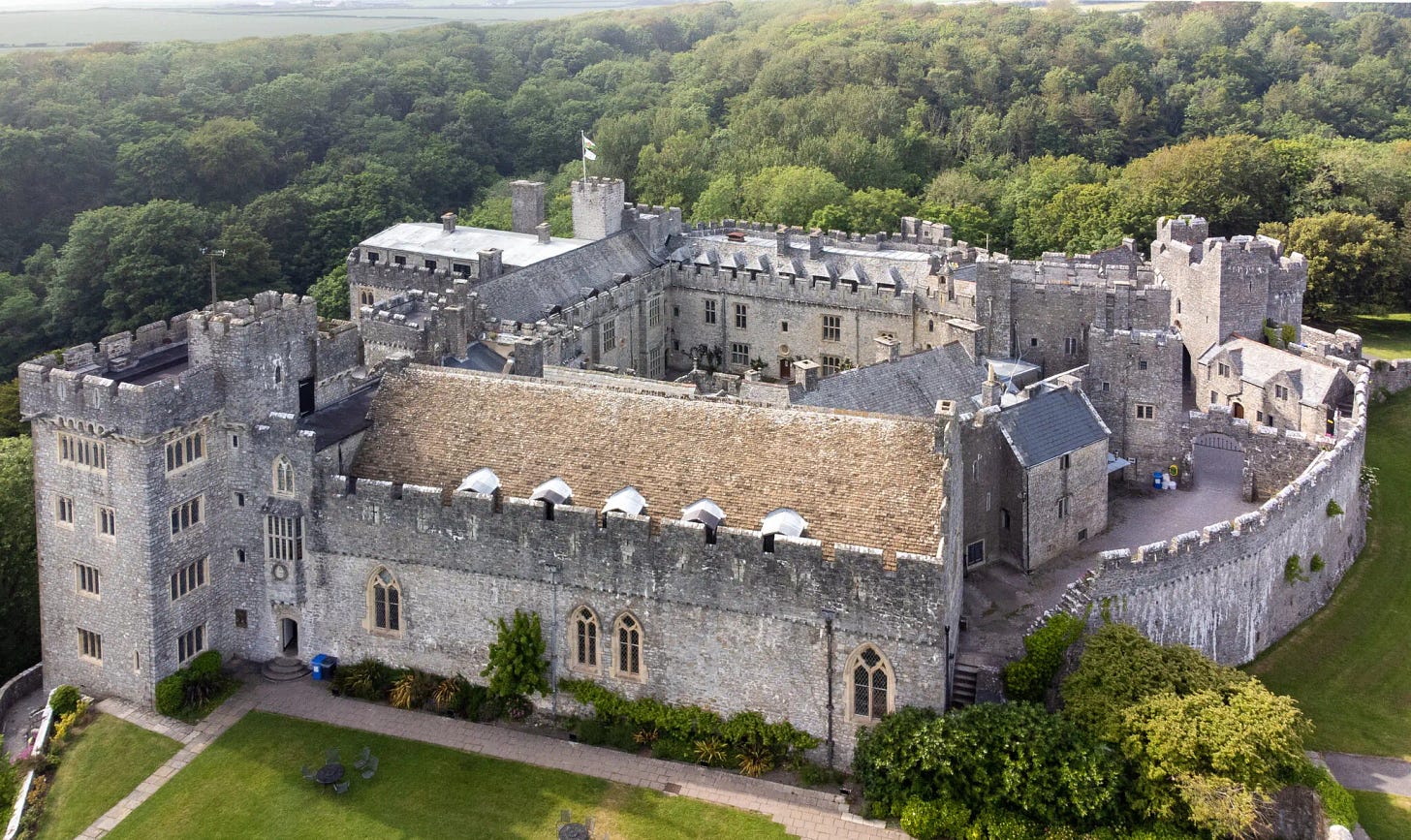Happy Friday, everyone.
I came across a story in the New York Times about a rather remarkable school called Atlantic College. It’s a high school, despite the name, one housed in a 12th-century Welsh castle. It is attended by, amongst others, the teens of actual European nobility. It costs $82,000 a year. While I could not find any specific data on admissions, it’s safe to assume that it’s vanishingly selective.
The thing that jumped out at me most about the article, though, was that the most elite school in the world actually sounded… very normal. Like, disappointingly normal.
What, then, does a teenage princess do with her days at Atlantic? According to the “A Day in the Life” section of the school website, classes run from 8 a.m. to just after 1 p.m., with afternoons left open for community service at local hospitals and schools, as well as activities like kayaking, archery, planting in the greenhouse or working on the school farm, or even serving on the school’s own lifeboat service.
Sounds fine, but unremarkable. This is a glitzed-up version of what I got in my public high school in Chattanooga: normal college preparatory coursework plus some service learning opportunities. It’s that familiar mash of traditional education and modern platitudes.
The traditional: same-age classes, rote homework, school exams that are easy enough that most students get A’s and where the hardest thing about them is that they are boring, forgetting most of what you’ve learned relatively quickly.
The modern: opportunities for hobbies, projects, and community service that are fine as far as they go but are relatively cursory, limited in scope and variety, and unrelated to the education.
This kind of education doesn’t serve most students well, and certainly did not serve me well. You might think that the most elite schools on earth would do not just a better version of the same old, but something fundamentally different. Something that imparted true, enduring understanding. Something that elevated work and initiated students into civilization. Something that allowed adolescents to take their first steps of full self-custodianship and agency.
But what in fact these schools provide is a much nicer locale, a much more restricted peer group, and the same milquetoast education. The best education that money can buy isn’t that good.
Education is often seen as an access problem: everyone can’t afford a great education, and so we need to make it cheaper and/or distribute its costs. But unfortunately, in my opinion, even expensive education is subpar. Education is something that we, as a civilization, by and large don’t get right and don’t understand. And alternative approaches to education, especially Montessori, haven’t yet earned their place in the recognized pantheon of excellences. When people try to buy education, they too often don’t choose innovative models. They more often buy an education that is undifferentiated, unambitious, and uninspired.
The flip side of this is that the education that we offer is precious and rare. We offer something genuinely innovative, something that actually supports and amplifies a student’s cognitive and moral development.
A phrase comes to mind: “The future is here, but not evenly distributed.” Montessori is occasionally (and very unjustly) criticized for being accessible only to the privileged, but the reality is that the main obstacle to the spread of Montessori is vision, argumentation, and the sort of quality implementation that is an argument for itself. By recognizing that and doing active work on these fronts, by pushing even on the frontiers of Montessori itself, both we and the families that we serve live in the future today.
Have a great weekend,
Matt Bateman
Executive Director, Montessorium




Thanks for this framing, Matt. I've been thinking about this from a homeschooling perspective too. When folks take their children's formalized education out of schools and into their homes, with hopes of individualizing education for their children, it's odd to see the unremarkable school framework repeated and played out there, too.
I think I see what you mean Matt. I saw a few things that stood out to me. I love that they get to live together and have a tutor/mentor! They also have touched on 2 significant areas of the 3rd plane. These kids have a great opportunity to contribute to society (changemaker initiatives), and they are given tutor/mentoring (Well Being Team) support during a tumultuous and or intense period of growth.
Still, "The flip side of this is that the education that we offer is precious and rare. We offer something genuinely innovative, something that actually supports and amplifies a student’s cognitive and moral development."
I am not certain how their curriculum/studies go but I absolutely agree that what we offer is precious and rare, and I love that Guidepost seeks to reach as many students as possible.